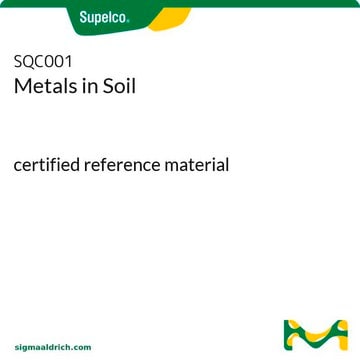1.73503
Zero Cell
Spectroquant®
About This Item
Produits recommandés
Matériaux
optical glass vial
Pression de vapeur
23 hPa ( 20 °C)
Forme
liquid
Technique(s)
UV/Vis spectroscopy: suitable
photometry: suitable
pH
7 (20 °C)
Compatibilité
for use with Spectroquant® Nova 60 A
for use with Spectroquant® Prove 100
for use with Spectroquant® Prove 300
for use with Spectroquant® Prove 600
Méthode de détection
photometric
Température de stockage
15-25°C
Application
- The impact of continuity correction methods in Cochrane reviews with single-zero trials with rare events: A meta-epidemiological study.: This study explores the effects of different continuity correction methods on Cochrane reviews involving single-zero trials with rare events, providing insights into optimal statistical approaches (Tsujimoto et al., 2024).
- The Most Probable Curve method - A robust approach to estimate kinetic models from low plate count data resulting in reduced uncertainty.: This paper introduces the Most Probable Curve method, which improves the estimation of kinetic models from low plate count data, reducing uncertainty and enhancing model reliability (Garre et al., 2022).
- USP: an independence test that improves on Pearsons chi-squared and the G-test.: This study introduces the USP test, an improved method for testing independence that outperforms traditional Pearson′s chi-squared and G-tests, especially in cases involving zero cells (Berrett and Samworth, 2021).
- Zero-cell corrections in random-effects meta-analyses.: The research discusses the application of zero-cell corrections in random-effects meta-analyses, providing methodologies to address zero-cell occurrences and improve the robustness of meta-analytical conclusions (Weber et al., 2020).
Informations légales
Code de la classe de stockage
10 - Combustible liquids
Classe de danger pour l'eau (WGK)
nwg
Point d'éclair (°F)
No data available
Point d'éclair (°C)
No data available
Certificats d'analyse (COA)
Recherchez un Certificats d'analyse (COA) en saisissant le numéro de lot du produit. Les numéros de lot figurent sur l'étiquette du produit après les mots "Lot" ou "Batch".
Déjà en possession de ce produit ?
Retrouvez la documentation relative aux produits que vous avez récemment achetés dans la Bibliothèque de documents.
Notre équipe de scientifiques dispose d'une expérience dans tous les secteurs de la recherche, notamment en sciences de la vie, science des matériaux, synthèse chimique, chromatographie, analyse et dans de nombreux autres domaines..
Contacter notre Service technique







